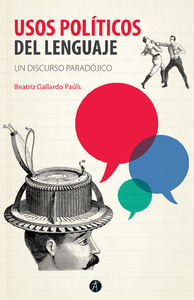
To pretend that the analysis of public discourse can only be at the service of the dominated groups, and that their researchers are alienated necessarily with these or with the dissenters of the dominant groups, supposed to ignore the dimension applied in this discipline [the language] that explains, precisely, the existence of strategies of abuse by speech, or of the cabinets and advisors of communication employed in monetize those opportunities. […] the aim of the linguistic analysis, understood in a broad sense, is precisely to bring to the fore the mechanisms declarative, textual and interactive that underlie the discursive strategies of any intent to unravel the possible existence of abuse discourse and identifying patterns that allow both its maintenance and its deactivation.
[…]
The analysis of discourse, in short, internalize the paradox of the border is constitutive of the linguistic, perceptual, in such a way that while it constitutes a field of discourse in itself (the field metalingüístico), their subjects, the analysts, are simultaneously involved in the discourse being analyzed (the linguistic-political)
(p. 18-19)
In what sense linguistics, and sociology must maintain a coexistence of symbiosis permanent? Leaving aside the differences that jealously is established between the bodies of disciplines of sociolinguistics and sociology of language, that is, the pre-eminence of the social over language or vice-versa, as we already said Lizcano1 (2006): metaphors, “those amazing elves of the imagination that we live in secret”, constitute the reality of each social group that, with the use of shared and repeated, have been reificado to the point of forgetting that they had a source and they are construction of the social imaginary. If we accept that, in all discourse, underlay, by very hidden, that is, some kind of ideology, it is not in the deformation of the communication, but in the rhetoric of basic communication (Geertz, 1992; Ricoeur, 1989),2 therefore, “we cannot exclude from the language the rhetorical resources, they are an intrinsic part of the current language”. This is the reason that Geertz makes the following warning, which is fundamental for sociologists who intend to deal with a minimum of success the analysis of the speeches:
Having No idea of how metaphor, analogy, irony, ambiguity, puns, paradoxes, hyperbole, rhythm, and all the other elements of what we usually call “style” —and in most cases without even recognizing that these resources have importance in the setting of personal attitudes into public form, sociologists lack the symbolic resources with which they could build a formulation more acute [of the functioning of the ideology that underlies all discourse].
(Geertz, 1992, p 183)
.
.
Index
.
Brief review about the author

Beatriz Gallardo Paúls is professor of Linguistics in the Universitat de València. He was a pioneer in the introduction of the conversational analysis in the hispanic area, with a descriptive model itself based on the cognitive linguistics of court perceptive that it has applied to the public discourse and private. This same model has been transferred to the language clinic, where especially in his research on aphasia and the direction of the corpus Perla clinical data.
To know more about Beatriz Gallardo Paúls , you can visit:
- Blog teaching in the UV: Blog Language Clinic
- Page RODERIC UV
- Page Academia.edu
NOTES
- Lizcano, Emmanuel (2006) Metaphors that we believe: science, democracy, and other powerful works of fiction available in: http://www.traficantes.net/libros/metaforas-que-nos-piensan. Traficantes de Sueños and Editions of below Zero. [↩]
- Ricoeur, Paul (1996) Ideology and utopia. Barcelona: Gedisa; and Geertz, Clifford (1992) The interpretation of cultures. Barcelona: Gedisa Editorial; both cited in: Lizcano, Emmánuel (2009) “economics as ideology. A socio-metaphorical discourses about ‘the crisis’”. Article in the Journal of Social Science, second period, year 1, no. 16, Bernal, Universidad Nacional de Quilmes, spring 2009, pp. 85-102. [↩]
